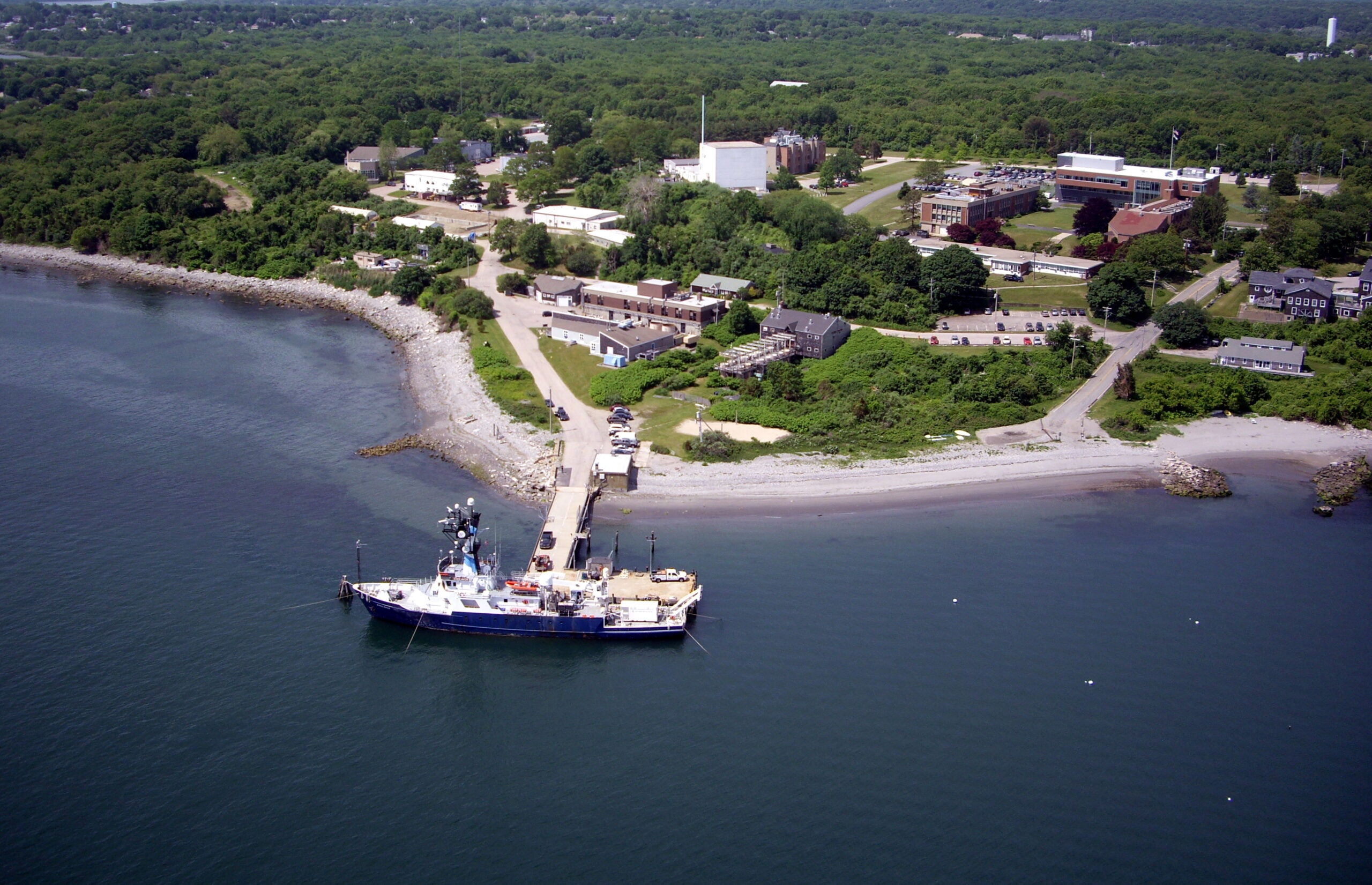NARRAGANSETT, R.I., Oct. 31, 2018 — The relevance of ocean science and teacher education to all Rhode Islanders will be made tangible Thursday afternoon when renowned explorer and University of Rhode Island Oceanography Professor Robert Ballard brings Central Falls High School students along on a deep sea expedition in the Pacific Ocean, without them ever leaving their school.
The event, to be held from 1:30 to 2:30 p.m. on Thursday, illustrates the important links among ocean research, higher education in ocean science and K-12 teacher education. Passage of Question 2, the higher education bond on the Nov. 6 ballot, supports these areas. The measure would provide $45 million to URI and $25 million to Rhode Island College’s Feinstein School of Education and Human Development for infrastructure and program enhancements that advance both ocean science and teacher education.
Ballard, a URI alumnus known around the world for his 1985 discovery of the RMS Titanic, and fellow researchers are aboard the EV Nautilus, where they are deploying remotely operated vehicles to the unexplored, deep-water region southeast of the Davidson Seamount in the Monterey Bay National Marine Sanctuary to characterize habitat, species and communities.
“This exciting event is just one example of how the cutting-edge science taking place at URI’s Graduate School of Oceanography can enrich the education of students throughout the state and beyond and offer teachers resources to improve their science curricula that they would not otherwise have available to them, said Bruce Corliss, dean of the Graduate School of Oceanography.
The area has been called “an oasis in the deep” in an otherwise flat seafloor, hosting large coral forests, vast sponge fields, crabs, deep-sea fishes, shrimp, basket stars and high numbers of rare and unidentified species that live at the bottom of the ocean.
The EV Nautilus is the flagship vessel of the Ocean Exploration Trust’s Corps of Exploration and is one of only two dedicated ships of exploration in the world. The 211-foot vessel is equipped with the latest ocean technology and can host up to 31 scientists in addition to a crew of 17.
“The age of exploration on our planet is just beginning, not ending, and the oceans are our final, unexplored frontier,” Ballard said.
Students in Central Falls will communicate with the EV Nautilus team and receive live video, audio and data feeds thanks to telepresence technology from the Inner Space Center at URI’s Graduate School of Oceanography. The only one of its kind in the nation, the center will provide the telepresence link between Ballard’s expedition 3,000 miles away at the bottom of the ocean and a classroom in Rhode Island. The center has connected thousands of researchers, educators and students around the world to live ocean expeditions for more than a decade.
In addition to Ballard, Dwight Coleman, director of the Inner Space Center, will serve as host of the event from the EV Nautilus; Chris Knowlton, assistant director at the center, will host from GSO; and Holly Morin, the center’s education specialist, will be his counterpart at the high school. Andrea Gingras of GSO is coordinating activities among the school, Narragansett Bay Campus and the EV Nautilus. Robert McCarthy, principal of Central Falls High School, and science teacher Alison Murray, are preparing students and coordinating logistics at the school.
URI’s Narragansett Bay Campus is home to the URI Graduate School of Oceanography (GSO), one of the world’s premier oceanographic institutions. Founded in 1961, GSO has built a reputation for excellence in deep water oceanographic research, coastal planning and management, sustainable fisheries and monitoring the health of Narragansett Bay. With operations, researchers, faculty and students worldwide, the Bay Campus education and outreach programs train the next generation of scientists and policymakers, while ensuring Rhode Island’s K-12 teachers and students gain an appreciation for the importance of ocean science through a variety of hands-on programs.
On Nov. 6, Rhode Islanders will vote on Question 2, a $70 million higher education general obligation bond that includes $45 million for upgrades to the Narragansett Bay Campus. If approved, proceeds from the bond will be used to improve the GSO’s pier (required to accommodate a newly awarded Regional Class Research Vessel from the National Science Foundation worth about $125 million), construct a 20,000-square-foot Ocean Technology building, a 12,000-square-foot Marine Operations building and fund other necessary improvements to campus facilities.

